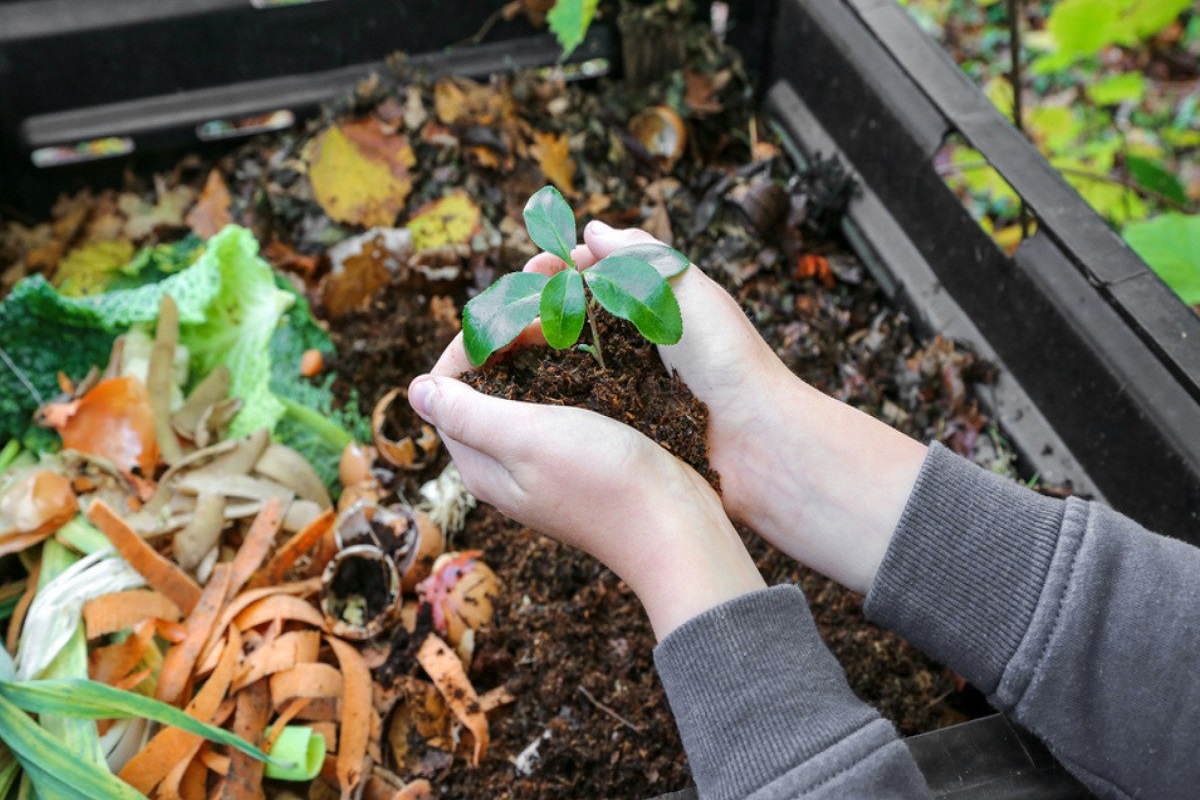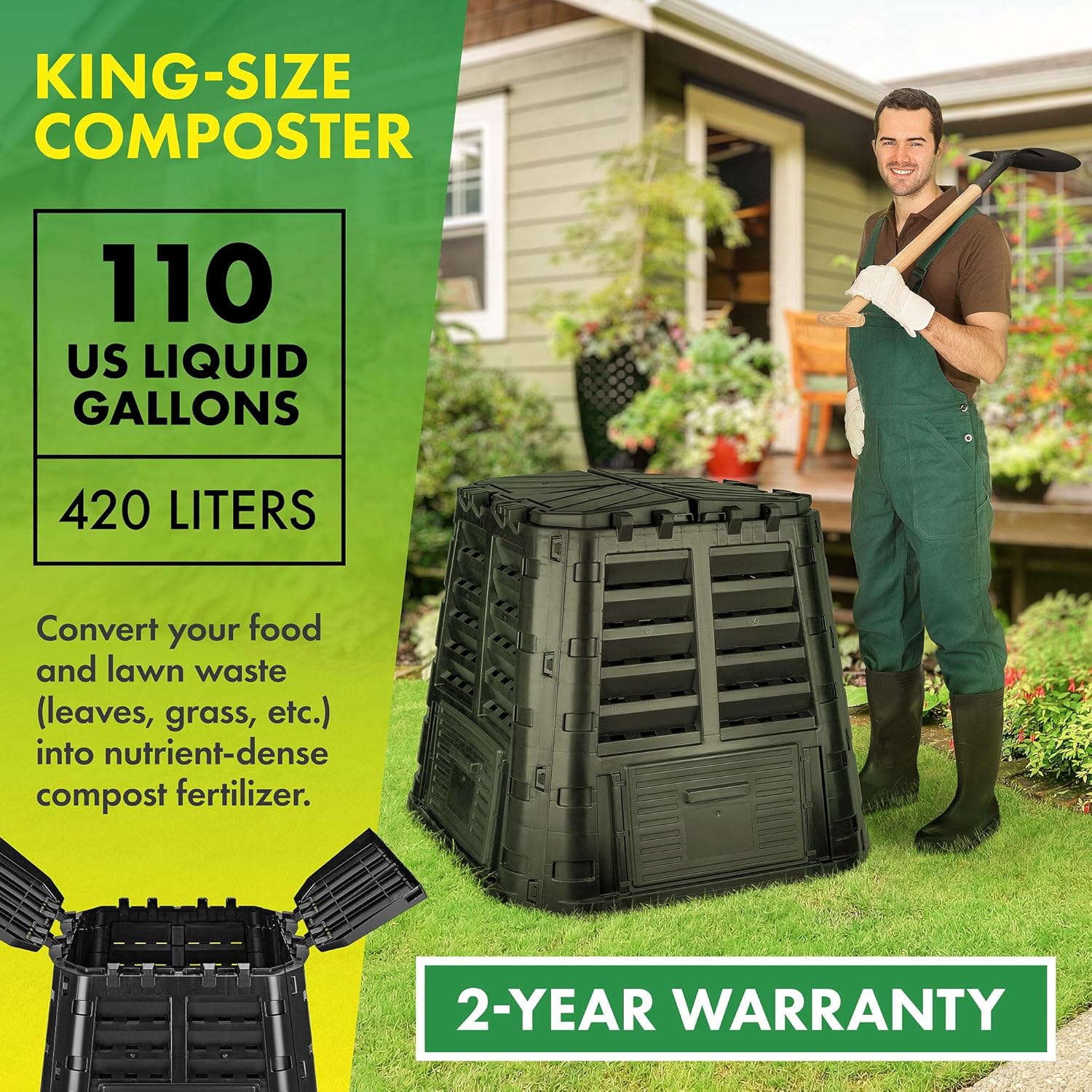E-commerce
Tips to consider when buying Recycled Plastic Composters

Plastic pollution is a real issue, with dangerous chemicals seeping into the environment and taking their toll on our health. This article has tips for buying Recycled Plastic Composters to help protect your family and the environment.
Table of Contents
Introduction
Image Source: Link
When you are shopping for a recycled plastic composter, there are a few things to keep in mind. Here are some tips:
- Size is important. Make sure the composter you buy can handle the size of your material waste.
- Location is important. Choose a location that is easy to access and has adequate ventilation.
- Budget is important. Don’t overspend on a composter just because it’s recycled plastic. Look for models that offer good value for your money.
What is a Composter?
Image Source: Link
A composting system is a great way to reduce the amount of plastic that ends up in our landfills. A recycled plastic composter can help you turn your recyclable plastic waste into nutrient-rich soil, which can be used to improve landscaping and garden growth.
When choosing a recycled plastic composter, make sure to consider the following factors:
Size: The composter should be large enough to accommodate your recycling goals.
The composter should be large enough to accommodate your recycling goals. Materials processing ability: Make sure the composter has the ability to process materials quickly and easily. This will ensure that your waste is turned into usable soil as quickly as possible.
Make sure the composter has the ability to process materials quickly and easily. This will ensure that your waste is turned into usable soil as quickly as possible. Composting temperature: Your composting system should have a warm environment in order for bacteria to grow and break down your waste material. It’s important to choose a composting system that is compatible with your climate zone.
Your composting system should have a warm environment in order for bacteria to grow and break down your waste material. It’s important to choose a composting system that is compatible with your climate zone. Odor control: Consider whether or not you want an odor controller when purchasing a recycled plastic composter. Some systems have advanced odor control features, which can help reduce unpleasant smells emanating from the machine.
Types of Recycled Plastic
Image Source: Link
There are a few different types of recycled plastic composters, so it’s important to know what you’re looking for before making a purchase. Standard composters use anaerobic digestion to break down the plastic into molecules that can be used by plants. This type of composter is usually the most expensive, but it can handle larger amounts of plastic than other types.
Small-scale composters use aerobic bacteria to break down the plastic, which makes them less efficient but also cheaper. These composters are best for people with small yards or who only need to process a small amount of plastic each week.
Pelletizers turn recycled plastic into small pieces that are easier for the earthworm to digest. Pelletizers are less efficient than standard or small-scale composters, but they’re cheaper and easier to use.
Where to Buy?
Image Source: Link
When you’re looking to buy a recycled plastic composter, there are a few things to consider. Here are five tips:
1. Size and capacity
First, think about the size and capacity of the composter you want. Some composters can handle a lot of organic waste, while others are designed for smaller amounts.
2. Price and quality
Next, figure out how much you want to spend and what quality levels you’re willing to accept. You can find affordable composters that offer lower quality materials or pricier models that offer higher quality materials.
3. Compostable material types
Also consider the types of material your compost will contain. Some composters accept only kitchen garbage, while others can handle items like food scraps and yard clippings as well.
4. Noise and smell levels
Finally, be sure to consider how noisy and smelly the composter will be. Some models are quieter than others, but some might produce strong smells. Consider how important these factors are to you before making a purchase decision.
The Pros and Cons of a Composter
When it comes to choosing a recycled plastic composter, there are a few things to consider. First, what is the purpose of the composter? If it is for home use, then a small, compact model may be best. On the other hand, if the composting facility will be used by the public or by a large organization with multiple locations, then a larger and more efficient model may be necessary.
Next, what type of plastic does the composter use? All recycling processes result in some degree of degradation of plastic. For example, PET (polyethylene terephthalate) composters will not work well with HDPE (high-density polyethylene) because the two types of plastics have different melting points.
Finally, how much space do you have available for the composting system? Again, size will be dictated by purpose – if space is at a premium then smaller models may be better suited.











